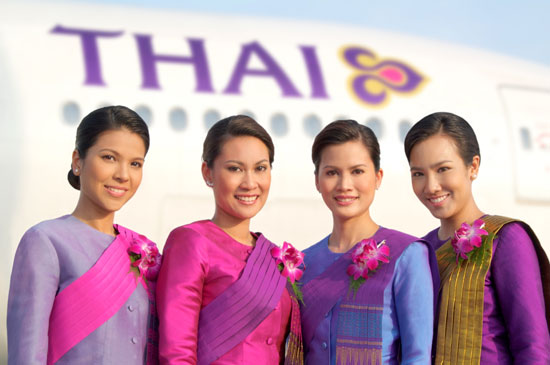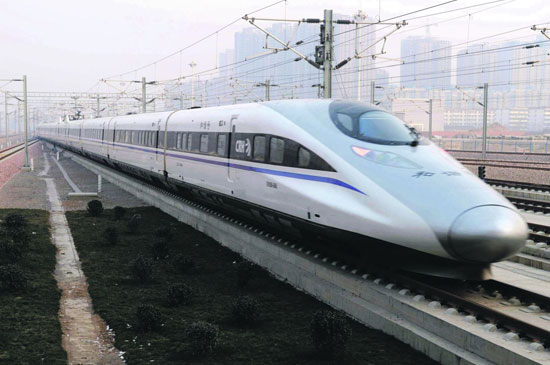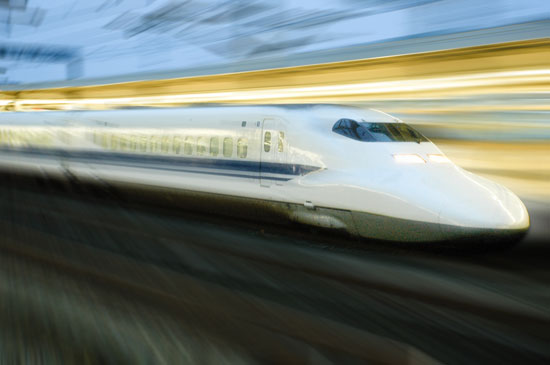





Thailand recently signed an agreement with the Chinese government to build a 873 km dual-gauge route from Nong Khai province to the industrial area Map Ta Phut in Rayong province. This rail line will also be passing through the capital city of Bangkok. The line will carry medium-speed trains accommodating mostly freight or goods delivery. The railway will help improve Thailand’s competitiveness and help the country become a regional transport hub. In turn, China has signed rice and rubber purchase deals with Thailand as part of the Thai-Sino railway development agreement. The deals were signed at the ninth meeting of the Joint Committee on Railway Cooperation in Bangkok.
Although the project has seen some snags and delays along the way, Thailand’s Prime Minister Prayut Chan-o-cha insisted the Thai-China railway project will not be derailed, as the cooperation inherent in the deal also underlines the 40th anniversary of diplomatic relations between the two countries.
Orange Line Given the Green Light
The 95.1-billion-THB Orange Line project, an extension of Bangkok’s subway line - which is operated by state-run Mass Rapid Transit Authority (MRTA) - is now set for completion by August 2022, according to a recent announcement by the cabinet. The 21.2 km electric railway will stretch from the Thailand Cultural Centre in the downtown Huai Kwang district, all the way to Min Buri district, in eastern Bangkok.
The project includes a 12km underground section, as well as a 9km elevated part, and 17 stations are planned along the route. Construction will be funded by the national budget and loans to be arranged by the Finance Ministry. It is estimated that the link will serve 114,000 passengers per day initially, and if the link is extended by 17.5 km westward to Taling Chan district, the whole system could carry 500,000 passengers daily. All this is welcome news for anyone having to deal with Bangkok’s notorious downtown traffic gridlock.
Orange Line Given the Green Light
The 95.1-billion-THB Orange Line project, an extension of Bangkok’s subway line - which is operated by state-run Mass Rapid Transit Authority (MRTA) - is now set for completion by August 2022, according to a recent announcement by the cabinet. The 21.2 km electric railway will stretch from the Thailand Cultural Centre in the downtown Huai Kwang district, all the way to Min Buri district, in eastern Bangkok.
The project includes a 12km underground section, as well as a 9km elevated part, and 17 stations are planned along the route. Construction will be funded by the national budget and loans to be arranged by the Finance Ministry. It is estimated that the link will serve 114,000 passengers per day initially, and if the link is extended by 17.5 km westward to Taling Chan district, the whole system could carry 500,000 passengers daily. All this is welcome news for anyone having to deal with Bangkok’s notorious downtown traffic gridlock.
Thai Airlines Pass EU Safety Test
A recent ruling by the European Aviation Safety Agency (EASA) spared Thai-registered airlines from being banned from European skies. The EASA will continue to closely monitor and assist the country in upgrading its air-safety standards. The commission said in a statement that no Thai-registered airlines were added to its EU Air Safety List for the listing of carriers subject to operational bans or restrictions in the European Union (EU) to be updated officially on Friday.
“The commission and the EASA are willing to continue to work with the Thai authorities to enhance aviation safety in the country,” the statement read. “The commission and EASA will, however, closely monitor future developments and, if the protection of air passengers against safety risks so requires, the commission could then propose to include one or more air carriers from Thailand in the Air Safety List.”
The EU reprieve comes as good news for the Thai aviation sector, which has seen air-safety downgrades from both the International Civil Aviation Organization (ICAO) and the US Federal Aviation Administration (FAA). Europe is Thailand's second largest tourism market, with the number of European tourists accounting for about 18% of total international visitors this year, so the recent positive ruling was a decided relief. About four million Europeans visit Thailand every year with about a quarter of those flying on THAI (Thai Airways International).